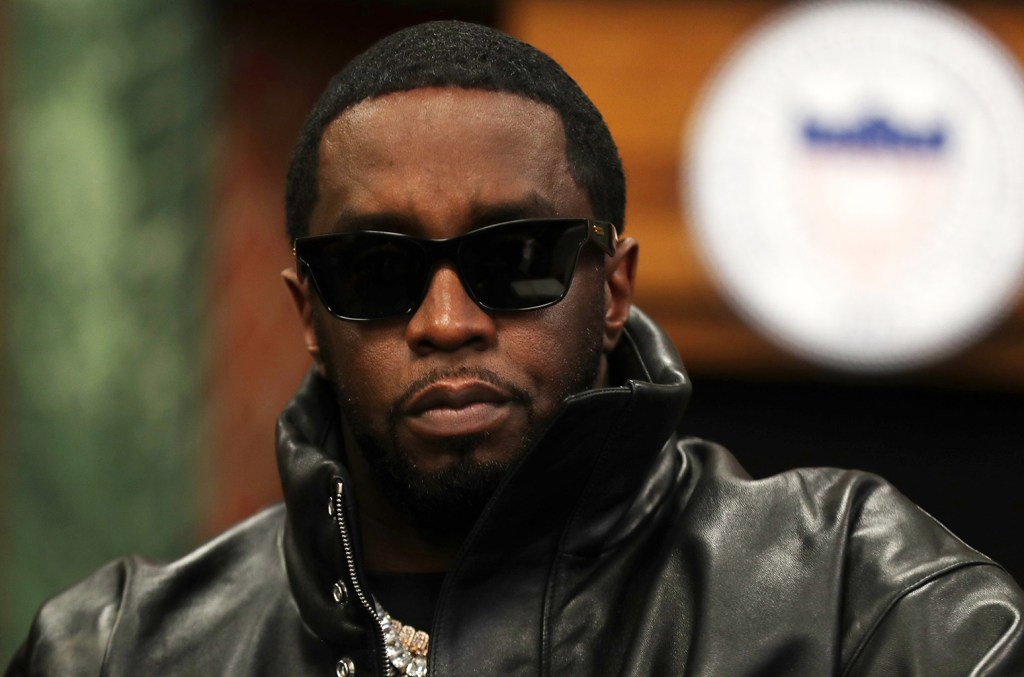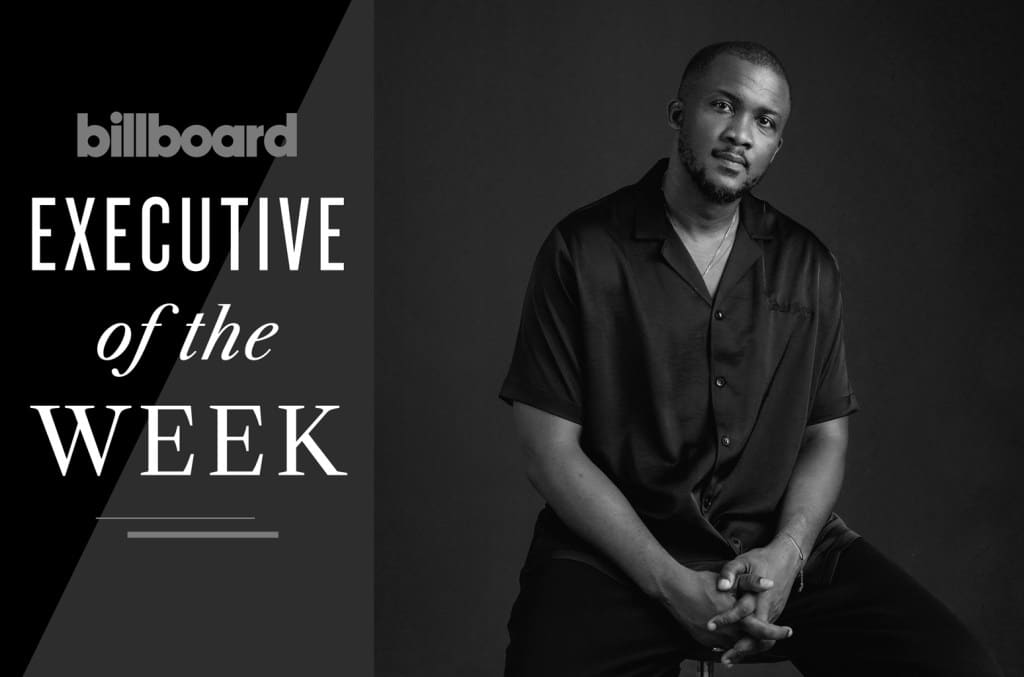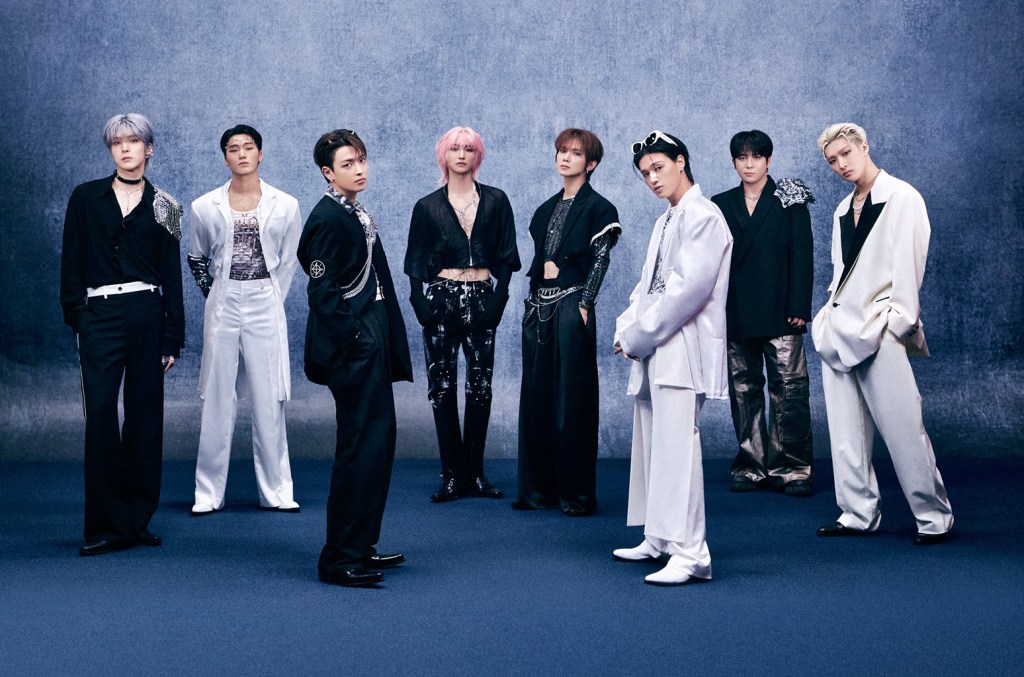Business
Page: 117
Billboard Canada Power Players is returning in 2025, and it’s moving to Toronto’s NXNE.
The authoritative ranking of the music business’s most powerful executives — an official extension of Billboard’s Power 100 list — expanded to Canada in 2024. The event brought a who’s-who of industry leaders to a packed celebration at Toronto’s tallest building, the CN Tower. This year, the event will grow even bigger at its new home at NXNE, the beloved music festival celebrating its 30th anniversary amidst a new strategic partnership with Billboard Canada.
Nominations officially opened this week and will close on March 7, 2025.
“We’re thrilled to bring Power Players to the country’s most vibrant music conference and festival,” says Mo Ghoneim, president of Billboard Canada. “Power Players is a crucial spotlight of the executives leading the charge in Canada on a global scale, and we can’t wait to bring it to new heights in 2025.”
Trending on Billboard
Canada is home to some of the most impactful people in music, both at home and internationally. In 2024, Billboard Canada celebrated Arthur Fogel, Live Nation’s CEO of global touring, at No. 1. The Canadian industry icon who shaped the modern global touring market attended the event and spoke about the impact Canada’s live music scene had on his career.
As Canada’s market for stadium concerts and festivals continues to expand and Canadian Content regulations continue to be debated, there are many factors and stories that could play a role in this year’s Power Players list.
Billboard Canada Power Players celebrates people across the industry, including record labels, publishing, legal, streaming and radio, creative media, and more. The extremely competitive honour reflects market share, industry impact, achievements and other metrics.
The Power Players list is peer-nominated and selected by the Billboard Canada team.
Find the submissions form here. It’s also available in French here. – Richard Trapunski
≈
Canadian Independent Music Association Pulls Out of SXSW Amidst ‘Instability’ In the United States
One of the top showcase opportunities for Canadian musicians at SXSW will not take place this year.
The Canadian Independent Music Association (CIMA) has canceled its Canada House event at the upcoming Austin music festival amidst rising political and economic tensions between Canada and the United States.
Andrew Cash, CIMA’s president and CEO, describes the decision as a confluence of various factors, mostly related to the relationship between the two countries since Donald Trump began his second term as U.S. President.
That includes the 25% tariffs placed on goods from Canada set to kick in on March 12, which falls during the dates of this year’s SXSW (which runs from March 7-15), as well as Trump’s repeated threats to annex the country.
“The growing instability of everything in the United States right now, plus the high cost [of putting on events in the United States] and the low [Canadian] dollar — all of these things combined made it so we couldn’t feel confident or good about what we were getting ourselves into at this particular moment,” Cash tells Billboard Canada.
“The timing is not great,” he continues. “We would be going down there just after the 30-day tariff pause has expired. We’re going to have a new Prime Minister [in Canada, following the resignation of Justin Trudeau]. I just didn’t feel comfortable putting CIMA out there in that context of instability.”
For more than a decade, Canada House has been a pivotal exporting opportunity for Canadian bands and artists at the influential American music festival. Taking over the Swan Dive music venue, it offers opportunities for Canadian musicians and entrepreneurs to network and showcase at an event well-attended by members of the local and international music industry. CIMA had planned to host a one-day daytime music showcase on March 12.
CIMA made the decision to pull out of SXSW on Feb. 13, sending emails to partners and invited artists informing them that they would not be producing the event this year.
Applications opened last fall, and four Canadian and Indigenous acts had been sent offers to play CIMA’s Canada House showcase. They learned of the cancellation last week.
“We don’t know what the climate is going to be,” Cash says. “It felt potentially dissonant to be going down to Texas and hosting an event called Canada House while the President of that country is essentially stating his intent to annex our country…We made the decision based on what we could control, because there’s so much about this situation that we can’t.”
CIMA is still offering Canadian bands spots at networking events with other international music offices and export partners from Australia, England, New Zealand and other markets. And though the Canada House showcase is on pause for 2025, they could still bring it back in future years depending on the geopolitical situation.
In the meantime, Cash says CIMA will focus its resources and investments on other international markets and opportunities within Canada. This will not affect the organization’s other Canada House activations at the German festival Reeperbahn, British festival The Great Escape or SXSW Australia.
Cash says he hopes the situation in the U.S. is resolved soon, as the country is Canada’s biggest export market — not just for music but many sectors of the economy.
“I think everyone understands that we’re in unprecedented times,” says Cash. “And I think everyone is unsure exactly how to react.”
For more on the cancellation, and how it affected artists who were invited to play, head here. – Richard Trapunski
≈
Kendrick Lamar’s ‘Not Like Us’ Hits No. 1 In Canada for The First Time After Super Bowl Performance
Kendrick Lamar‘s “Not Like Us” is the No. 1 song in Canada this week — for the first time.
The diss track never managed to claim the top spot on the charts in Drake‘s home country like it did in the U.S. last year during the height of the stars’ heated rap beef. But after a Super Bowl halftime performance that saw record viewership, Canadians have pushed the controversial single to a new peak on the Billboard Canadian Hot 100 for the chart dated Feb. 22, 2025.
Going into the Super Bowl, it wasn’t clear if Lamar was even legally allowed to perform the track, as Drake is suing Universal Music Group, the label that released it. But after teasing it throughout the night, Lamar not only played the song, he included the lines that name-drop Drake and accuse him of predatory behaviour. Serena Williams, Drake’s ex, danced alongside Lamar on the field.
Following the success of “Not Like Us” last year, Lamar dropped a surprise album, GNX, which is at No. 2 on the Billboard Canadian Albums chart this week. Lamar is also all over the Canadian Hot 100, with 11 of his tracks charting there.
He performed his SZA collab from that album, “Luther,” at the halftime show as well, with the R&B star joining for the duet. That track also got a post-show boost, rising 18-2 on the Canadian Hot 100, as did SZA’s 2017 album Ctrl, which re-enters the Canadian Albums chart at No. 91. SZA’s SOS, meanwhile, drops from 2-3 behind GNX.
The two will perform together on the Grand National tour this summer, which stops in Toronto on June 12 and 13. – Rosie Long Decter
Strong earnings releases from Live Nation, CTS Eventim and Cloud Music clashed with a downturn in the market this week. The most notable release of the week came from Live Nation, which reported record revenue of $23.1 billion in 2024 and forecast a healthy stadium business in 2025.
Still, Live Nation shares fell 1.9% on Friday (Feb. 21) after Thursday’s earnings release and finished the week down 2.8% to $148.48. The stock had gained 19.7% in the first seven weeks of the year, however, and expectations for a strong quarterly report and 2025 outlook were likely priced into the shares. More telling is Live Nation’s 56.8% increase over the previous 52 weeks, suggesting that investors are convinced the company has a winning combination of concerts, ticketing, and sponsorships and advertisements.
A bevy of analysts upped their Live Nation price targets following the company’s earnings release on Thursday (Feb. 20), including Evercore ISI (to $180 from $160), JP Morgan (to $170 from $150), Jefferies (to $180 from $150) and Rosenblatt (to $174 from $146). Ahead of the company’s earnings report, Morgan Stanley raised its price target to $170 from $150 and Seaport Global Securities raised Live Nation shares to $170 from $157. A dissenting voice came from CFRA, which has a “sell” rating on Live Nation shares and this week increased its price target to $135 from $115.
Trending on Billboard
The 20-company Billboard Global Music Index (BGMI) fell 2.9% to 2,674.34, marking its first decline in seven weeks and only its second weekly loss of 2025. Only six of the 20 stocks gained ground while 14 finished the week in negative territory. Even so, music stocks are performing well this year. Only four of the 20 stocks have lost value in 2025 and the BGMI has gained 25.9% year to date.
U.S. stocks cratered on Friday amidst a drop in consumer sentiment, an uptick in inflation expectations and worries the economy may be slowing. The Dow dropped 1.7%, the S&P 500 also fell 1.7% and the Nasdaq composite sank 2.2%. Summing up the market’s tenuous mood, Steve Cohen, CEO of hedge fund Point72, told the FII Priority Summit on Friday that tariffs, sharp cuts in government spending and slowing immigration will have negative consequences. “It may only last a year or so, but it’s definitely a period where I think the best gains have been had and wouldn’t surprise me to see a significant correction,” he said.
The best-performing music stock of the week was Chinese music streaming company Cloud Music, which jumped 18.1% on Friday and ended the week up 20% after the company’s 2024 earnings release on Thursday showed a 22% jump in music subscription revenue. At 170.70 HKD ($21.97), Cloud Music is up 52.1% year to date. Another Chinese music streamer, Tencent Music Entertainment, rose 5.6% to $14.40.
CTS Eventim shares rose 4.7% to 104.00 euros ($108.83) after the company announced record results for 2024 on Tuesday (Feb. 18). Consolidated revenue increased 19.1% to 2.81 billion euros ($2.94 billion) and adjusted earnings before interest, taxes, depreciation and amortization (EBITDA), a common measure of profitability, jumped 21.9% to 444.8 million euros ($465 million). Live entertainment revenue rose 17.6% to 1.97 billion euros ($2.06 billion) while ticketing revenue climbed 22.7% to 879.9 million euros ($921 million).
Spotify fell 4.8% to $607.36 while Warner Music Group dropped 2.9% to $35.26 and Universal Music Group was down 3.0% to 28.02 euros ($29.32). Sphere Entertainment Co., which will announce quarterly earnings on Feb. 28, lost 2.8% and sister company MSG Entertainment fell 5.0%.
Most K-pop stocks rose this week as South Korea’s KOSPI composite index gained 2.5%. YG Entertainment rose 12.0% to 57,900 ($40.30) following the announcement on Wednesday (Feb. 19) of BLACKPINK’s 10-city 2025 world tour that commences in July and stops in Seoul, Los Angeles, Chicago, New York, Toronto, Paris, London, Milan, Barcelona and Tokyo. SM Entertainment shares rose 7.8% to 99,500 KRW ($69.25), bringing its year-to-date gain to 37.1%. JYP Entertainment rose 1.6% and HYBE fell 1.0%.

R&B star Chloe Bailey (performing as Chlöe) has been accused of failing to properly credit and pay a songwriter who worked on her album Trouble in Paradise and of commercially releasing the songs he wrote without his consent, according to court documents filed in the Southern District of New York on Thursday (Feb. 20).
In the lawsuit, filed by attorney Tyrone Blackburn, songwriter Melvin “4rest” Moore alleges that the actions of Bailey, along with her label Parkwood Entertainment and Columbia Records, constitute “copyright infringement, fraudulent misrepresentation, violations of the Digital Millennium Copyright Act (DMCA), civil conspiracy and deceptive business practices.”
According to the complaint, Bailey “fail[ed] to appropriately credit or compensate” Moore in connection with the songs he worked on for Trouble in Paradise — “Favorite,” “Might As Well” and “Same Lingerie” — which Moore says were written about his own “personal and…lived experiences.” It also claims that Moore “did not grant consent to the commercial exploitation of the [songs]” he wrote for Bailey and that he did not get an opportunity to “engage in good-faith negotiations” with Bailey’s team around contractual terms, citing an email from Moore’s attorney to Bailey’s counsel on Aug. 8, 2024.
Trending on Billboard
(Records from ASCAP and BMI’s Songview repertory, which contain official accounts about which writers and publishers worked on a given song, indicate that Moore is listed as a writer for “Same Lingerie” and “Might As Well” but not for “Favorite.”)
The lawsuit calls Bailey, Parkwood and Columbia “modern-day swindlers” and claims that Moore’s attorney “repeatedly made good-faith attempts to amicably resolve the matter of [Bailey, Parkwood and Columbia’s] unauthorized commercial exploitation of the works” over the course of “almost 200 days.”
After not being able to reach an agreement, Moore’s attorney says he issued a DMCA takedown notice, asking for the songs Moore worked on to be removed from the internet. The complaint adds that Moore’s team feels their takedown was “willfully and blatantly ignored.”
Moore is asking for monetary damages up to $150,000 for each intentional violation; a court order to stop further commercial use of the songs; a complete investigation of Bailey, Parkwood and Columbia’s revenue from unauthorized use of the songs; repayment of all profits gained from the songs; a requirement for defendants to publicly retract their claims and properly credit Moore; punitive damages of $5 million per song; and any additional relief the court finds appropriate.
Representatives for Bailey, Parkwood and Columbia Records did not respond to Billboard‘s requests for comment by press time.
Even before a disruption in January caused by a looming U.S. ban, TikTok’s domination of video-based social media usage had started to wane. The service’s share of U.S. consumers’ time spent using social media apps fell to 29% in the fourth quarter of 2024 from 34% in the prior-year period, according to MusicWatch. In that same time span, YouTube Shorts’ share increased from 24% to 26% and Facebook Reels improved from 16% to 18%, while the “other” category rose one percentage point to 6%, Instagram Reels was flat at 18% and Triller remained at 3%.
That coincided with an overall downward trend in social media use. The average time spent using social media apps per week dropped from 7.9 hours in the fourth quarter of 2022 to 6.5 hours in the fourth quarter of 2024, says MusicWatch principal Russ Crupnick. That’s not an unexpected trend as Americans move further past pandemic-era behaviors, but Crupnick also notes that average times will fall as older, more casual users adopt social media platforms.
Trending on Billboard
Still, that overall decrease doesn’t account for TikTok’s declining share of consumers’ attention. A few years ago, the app seemed like an unstoppable freight train as its influence spread across tech and commerce. It also became a powerful promotional vehicle for artists, many of whom launched their careers by going viral on the platform. Once TikTok proved there was an insatiable demand for short-form video, Instagram and YouTube launched copycat products with Reels and Shorts, respectively. Its impact even spread to Amazon, which launched a TikTok-styled feed for product discovery called Inspire in 2022 (Amazon announced it was shutting down the feature earlier this week). Music streaming services also followed suit: At Spotify, artists can now post short video messages to their fans.
Exactly why TikTok lost share in 2024 isn’t clear. “It’s hard to say,” says Crupnick. “Is this a function of all the political nonsense going on around the app? Is it a function of YouTube and some of the competitors catching up a little bit? Is it a little bit of exhaustion with music on social video? Or is it all three?”
Whatever the case, this reshuffling of the landscape has led artists to flock to other platforms and eroded TikTok’s dominance as a promotional vehicle. Experts who spoke with Billboard about TikTok’s decline described a changing social media landscape in which the platform remains a powerful marketing tool but has lost some of its allure and potency. For a variety of reasons, consumers are spending more time at TikTok’s competitors, and artists are thus seeing more opportunity at platforms such as YouTube and Instagram.
One factor in TikTok’s decline in market share is YouTube and Meta successfully leveraging the scale and scope of their respective platforms to become serious contenders in short-form video. YouTube, in particular, has succeeded in integrating Shorts into a platform that used to be occupied only by long-form videos. “I think YouTube has done a good job of building an ecosystem,” says J.D. Tuminski, founder of Casadei Collective Marketing Agency. “They do a lot of education for artists and labels about building the Shorts ecosystem that feeds into the bigger picture of music video content and lifestyle content.”
Jenna Rosenberg, head of operations and marketing at Gorilla Management, agrees that YouTube has benefitted by combining short-form and long-form videos. “I think when people are watching the longer videos [on YouTube] they can easily get sucked into the short-form part of that platform as well, and vice versa. Whereas TikTok, it’s literally just the vertical short-form content.”
At the same time, YouTube and Instagram are increasingly seen as friendly to creators. “Anecdotally, YouTube and Meta pay better than TikTok,” says Tuminski. “Also, the TikTok creator fund is always shifting. There are different thresholds that you have to meet to be able to earn on there, and they’re not always clear.”
TikTok, on the other hand, is seen as prioritizing some of its e-commerce initiatives. TikTok Shop, for example, allows creators to stream live videos and sell goods and merchandise. In January, TikTok Shop sales were up 153% year-over-year, far exceeding the growth rates of Chinese e-commerce platforms Shein and Temu, according to Bloomberg. While live shopping may be a sensible practice for a TikTok influencer, musicians tend to shy away from that kind of activity — and as a result, they aren’t flocking to TikTok Shop. “An artist isn’t necessarily going to go on TikTok Live and say, “Hey, come and buy my vinyl,’” says Rosenberg. “It’s just very uncomfortable for them.”
The standoff between Universal Music Group (UMG) and TikTok may also have played a part in shifting sentiment around the app in the music community. In February 2024, UMG began pulling its content from TikTok over a disagreement about compensation, among other factors. For many artists and labels, that dust-up was “a warning sign” that TikTok’s dominance in social media wasn’t secure, says Dan Roy Carter, managing director of digital consultancy Carter Projects. “Deals fell apart, carefully designed viral campaigns became eye-watering wastes of budget, and acts who had built their presence reliant on TikTok were left very much bent out of shape.”
“I think a lot of folks were looking for alternatives, even before all the political things that are going on,” says Tuminski. Artists want to work with brands they trust, he adds, and they will go where their fans are. If one service isn’t providing what they want, “they’ll go to somewhere that makes a little bit more sense to them.”
Things have worsened for TikTok in 2025 due to a pending shutdown in the U.S., although President Donald Trump provided a stay of execution when he entered office. The looming ban caused traffic to decline, however, and pushed people to download alternatives such as RedNote. As of this week, TikTok has lost one-tenth of its U.S. users since the first week of January, according to Similarweb data published by The Information.
Still, TikTok remains a powerful and influential force in music and entertainment. By 2024, a third of U.S. adults used TikTok, while almost six in 10 teens (57%) say they use the platform daily and 16% say they’re on it “almost constantly,” according to Pew Research. People use TikTok mostly for pop culture and entertainment but also viral music and dances, humor and comedy, personal stories, fashion advice, product recommendations, politics and, for 5% of U.S. adults, news.
“There is still huge value in TikTok as a platform for music discovery and promotion, and perhaps their ability to tap into merch, ticketing, and conversion to paid streaming will usher a second coming,” says Carter. “But its days of being the only horse are seemingly coming to an end.”
One of Sean “Diddy” Combs’ attorneys has filed a motion to step down from representing the incarcerated hip-hop mogul. Per court documents filed in the Southern District of New York on Friday (Feb. 21), Anthony Ricco said that while he had “provided Sean Combs with the high level of legal representation expected by the court, […]

In a new series following the devastating L.A. wildfires of January 2025, Billboard is speaking to impacted members of the music industry about their lives in the wake of the disaster. Affected music professionals who wish to take part in the series can email us at afterthefire@billboard.com.
This installment is with Iyana, an R&B singer, songwriter and instrumentalist who lost her Altadena apartment in the Eaton Fire.
I was at the recording studio when it happened. The power went out and [my neighbor] texted and invited me to over to hang with him and his lady and their dog.
Trending on Billboard
I wasn’t at home, so I said thank you and passed, and that was it for a few hours. I was doing my thing, hanging out with friends making music in Studio City, which is pretty far from my house. My neighbor checked on me again a few hours later and said “Don’t come back. We’re getting evacuated.” But I had my two cats at home, so I had to go back.
I texted another friend and told him we were getting evacuated and that I was having a lot of anxiety because of the cats at home. I don’t have a car, so he asked if I needed him to come pick me up so we could go rescue the cats. I told him I would love that. He drove all the way from downtown to Studio City to pick me up, then to Altadena.
This was hours after the evacuation notice had gone out, and the power was still off when I came home. It was pitch black and I had to wrangle my two cats. I was using my iPhone flashlight to see, and my brain was just mush. I didn’t really know how to process everything that was going on. I grabbed my laptop and a couple chargers, a little bit of cash that I had stashed away and that was about it. I was there for about 10 minutes.
I could see the fire from my window, but it looked far enough away that if they could get it under control, my place would be fine. I honestly did not think my place was going to burn down, so in my head I just kept telling myself it was going to be okay and that I’d be able to come back tomorrow. It was a crazy feeling to get a message from the property managers the next day telling me that the buildings were destroyed, knowing that I didn’t really get anything out of [my apartment.]
My mom passed away when I was younger, and I had a lot of her artwork and all the things I had left from her. Photos from my childhood, memorabilia from when I was a kid, things I thought I’d share with my future children one day. There were journals that I wanted to keep for my entire life to look back and see where I was at certain times. It’s all gone.
It’s been a lot to process. I feel like I’m doing pretty well accepting that it is what it is. I’m trying my best to practice non-attachment. This is a really huge lesson in non-attachment. It’s kind of crazy not to have anything, but’s a little bit liberating in some ways too, I suppose. I’m trying to see it from that perspective.
My friend who came with me to grab the cats is also a producer, so in the immediate aftermath I went with him to the recording studio and spent two nights there. It wasn’t the most comfortable situation, but I was able to have my cats there, which was really nice. It was a safe place for me to be for a couple of days.
A friend of mine called the next day and asked what I needed. It was just like, “I don’t know what I need. I’m having so many emotions that I can hardly think.” She asked, “Do you need underwear? Do you need toothpaste?” I was like, “Oh my gosh, yes. I actually do need underwear.” These were things that I wasn’t thinking about right after it happened, because I was honestly still in a state of shock. I needed other people to use their brain for me.
I also had a friend who told me I should start a GoFundMe. It’s been helpful. I’m still not sure about insurance, because the insurance company has been wishy-washy and trying to play games with us a bit. Even the FEMA thing, [they said] the National Guard was blocking my area for so long that FEMA wasn’t able to get proof or something. A lot of people have donated stuff to me. I got some clothes and the things I need for hygiene and whatnot. I’m pretty much living out of two suitcases and a duffel bag. I have a friend who’s in India for the month, and she’s letting me stay in her place while she’s gone. Another friend took my cats and she’s willing to [house them] as long as I need her to.
I’ve had a couple studio sessions since it happened, and it’s been really helpful for me to be in the studio and create, just because everything’s so crazy. It gives me a sense of normalcy or just allows me to have a moment of therapy.
I had a whole release schedule before this happened, a whole plan of what I was going to be doing for quarter one, two and three and the singles and projects I was going to release. I love writing love songs, but it feels weird too, because my house just burned down, and then I am going to drop a love song? It just didn’t feel right, so it felt nice to write a song about the situation. I think that will probably be the next song I share with the world.
It’s crazy too, because I’d released a song the day before the fire. I was also planning on this month being a marketing and promotion month for me, but I haven’t really been able to do any promo. It just doesn’t feel right to be like, “Hey guys, listen to my new song” while this is all going on. Instead, it’s been a whirlwind of trying to readjust and figure out how I go back to having a normal life… I typically work at a restaurant, but luckily the donations I’ve gotten are keeping me afloat for now, because to be honest, the idea of smiling in people’s faces and asking them what they want to eat for dinner just does not feel like mentally where I’m at right now.
I feel like I’ve seen this narrative on the internet, from people who aren’t from here and think this only happened to rich people and celebrities, which is silly… If people have the capacity to donate monetarily, that’s helpful for me right now, just in terms of rebuilding.
If people don’t have that capacity, I would love for people to tap into my music and see what I’m doing. It’s hard for me to imagine going back to a regular life after this. Theoretically, it’d be so nice if my music moved and did some numbers. It’s definitely my dream to be able to make money and start a life with music being the foundation, so having people support me on my journey and see my growth would be more than I could ask for. If people are willing to listen to my tunes and share them, that would warm my heart.
Wale Davies first met Nigerian singer Tems in 2018, shortly after she released her first single, the stirringly plaintive “Mr. Rebel.”
“Initially it was informal; I just liked her song, I was just helping her put it on sradio and connecting her with people in the industry in Nigeria,” says the artist-turned-manager. “I’m always attracted to music that makes me feel something, so when I heard the first single, what I felt was somebody singing for their life — she meant every word she was singing in that song.”
Davies, who co-manages Tems with Muyiwa Awoniyi, has been with the singer ever since — and has watched her grow into one of the biggest African artists on the planet. To name just some of her accolades: She’s landed 28 songs on the Billboard U.S. Afrobeats chart, including 10 top 10s and two No. 1s; she’s collaborated with the likes of Drake, Beyoncé and Future and covered Bob Marley’s classic “No Woman, No Cry” on the Black Panther: Wakanda Forever soundtrack; she reached the top 10 of the Billboard Hot 100 in 2021 with a feature on Wizkid‘s inescapable hit “Essence,” which got a remix from Justin Bieber; she’s earned eight Grammy nominations, and became the first Nigerian to ever win two Grammys after taking home best African music performance for her single “Love Me JeJe” earlier this month; and this week, she became the first African female artist to hit 1 billion Spotify streams for her feature on the Future and Drake song “Wait 4 U,” which samples her 2020 single “Higher.” That’s to name just a few of her accomplishments.
It’s been a rapid-fire rise in just a few years for the singer, and one she’s had to handle in the public eye. “Just seeing her grow as a human being, first, has been the most remarkable thing,” Davies says. “She’s had a lot of fame thrust on her super early, and her adjusting to those changes and how everything came, and now working with the record label and getting global attention and big artists reaching out to you, and social media and all these different platforms and people, seeing her adjust to that and learn and grow and work on herself has been the most impressive thing.”
Trending on Billboard
Now, all that success helps Davies earn the title of Billboard’s Executive of the Week. Here, he discusses Tems’ rise as an artist, the work that went into her 2024 debut album Born In the Wild, the record-breaking success of “Wait 4 U” and the rise of African music in the U.S. “I’ve worked in the music space in Nigeria for quite a long time, and I’ve never seen anybody grow and accelerate that quickly,” Davies says. “Seeing the change of where she was to where she is now, and the confidence and how she’s grown as a person, is as close to a miracle as I’ve ever seen.”
This week, with “Wait 4 U,” Tems became the first African woman to hit 1 billion streams on Spotify. What key decisions did you make to help make that happen?
For Tems, her music is very personal to her and comes from a very personal place. So initially when we got the call [about the song sample], the first thing she said was, “What do you think?” And I said, hearing what they’ve done with the song, they honored it in a good way and it would appeal to a whole bunch of different, new people, and if the goal is to have people feel something from your music, as long as the music still represents that, and it opens the door to new people to hear it, I think it’s a great idea to do it. And she loved Future as well, she just wanted to see how that marriage would work, and it turned out beautifully. And with all the structure and all the business behind the scenes with the song, my job is to make sure that everything is done for the benefit of my artist, and making sure that, yes, we are coming from Africa, and yes, these are big global superstars, but that we’re well represented at the table as well.
You mentioned the sample is “Higher,” which is off her first EP For Broken Ears, which came out five years ago now. What is it about that song and that EP that has given it such staying power?
One of the things I noticed very early on in Tems’ music is, each time I listened to her songs, I found new things and loved them even more. And that’s very rare with records, because after a while you can hear a record too many times. And even going on tour with her, having been in the studio with her working on these records for years, and then hearing them live, they still sound fresh and new, and I still feel something every time. I think people are trying to tap into their emotions and tap into things, and when music allows you a safe space to do that, it has a quality that’s timeless and lasts. The best music, you remember the first time you heard that song, and that’s timeless music. And that’s what it does — it evokes emotions, it helps you place it. So for me, “Higher” does that as well. It’s such a beautiful song. I heard it from voice note to this version to “Wait 4 U,” and each iteration of the song has been great.
“Wait 4 U” won her a Grammy, and then she just won another with “Love Me JeJe” a few weeks ago. That makes her the first Nigerian to have ever won two Grammys. What’s the significance of that for you?
We never really started out with the intention of global stardom or anything, she just really wanted to sing. She would joke at the beginning, “If I didn’t meet you guys, I would just be happy to sing in hotel lounges, just for people to hear my music.” But the way it’s gone and the way it’s grown and the way it’s resonated with people, what the Grammys do is they solidify the fact that you can still make music that is true to yourself and have it recognized globally.
“Love Me JeJe” was a strong choice for us to be the lead single from the project because it referenced something nostalgic to us, because the original “Love Me JeJe” song was one that we all grew up with in Nigeria, our parents loved the song, and so for us to be able to pay homage to that song was really special. We spoke afterwards — the original guy who sang the song, Seyi Sodimu, is also now a Grammy winner, 21 years after. So it was also giving him his flowers for doing something remarkable at a time when there wasn’t that much light being shown on our music and where we’re from. It just gives people the opportunity to dream — yes, you can get this global acclaim. And for us, it being the first song that she’s done herself by herself to win a Grammy, it just shows that the work is being seen and felt.
This song is off Born In the Wild, her official debut album. How did you want to roll that out and market it? And did you feel like you needed to introduce her with this project?
She had her first two EPs, she had “Wait 4 U,” she had “Free Mind,” “Essence” was a big song as well; all of this was without actually putting out a debut album. The phrase we would laugh about while we were recording was just trying to figure out a way to dance like you’re still in your little studio by yourself. Now we’re in bigger studios and there’s more opinions and more people. So it was trying to, first of all, block out all that noise and allow the artist to just be themselves, and then helping sometimes when they have internal noise telling them to do this or that. So it was trying to do something that felt really true to Tems. She listens to loads of different music, she creates loads of different music, and I think with the EPs you got certain glimpses of what types of music she makes, and with the album she wanted to lay it all out: Here are the different influences I have, some of them might be reggae, some of them might be Nigerian songs, some of them might be Sade Adu. So in all those different worlds, how do you connect that seamlessly?
And it was also important for us that we started the project back home. For us, we feel like there’s a lens through which people are able to look at Africa, look at an African woman and look at what a modern African looks like through Tems, whether through the way she portrays herself or carries herself, or through her music as well. So it was important that the first look we gave from the album was “Love Me JeJe.” We shot the video in Lagos, she was on a flatbed going through Lagos, which was surreal in itself because of the traffic in Lagos. It was a crazy moment.
Starting with “Essence,” she’s really been at the forefront of African music’s rise in the United States in the past couple years. How do you feel that’s progressing?
My theory is that we’re in a world now where we’re constantly looking for new things, consciously and subconsciously. I feel like with music you were hearing a lot of versions of the same thing you’ve heard before, and I think it came to a point, to me, where people started looking outwardly. Initially, I felt like the U.S. was very insular: U.S. music, U.S. charts. But once they started listening to new things, what people found was that there’s similarity and threads in everything. It’s called Afrobeats, but a lot of the songs Tems does are R&B songs. All of us grew up on American music, but also on Nigerian music and Jamaican music. Our music is more or less like a melting pot of all of our influences growing up, and I think there’s definitely a part of that that people will relate to because they’re mostly global references, and then you’re hearing Nigerian sounds that you may have never heard before which sounds new. So I think the rise of African music is extremely needed, and what people will realize is that they will find there are more artists in different genres playing in different spaces and different lanes, and it’s really a beautiful thing.
What’s next for you guys?
Tems has different ways she wants to express and showcase the music, so we’re finding different ways of how to push out the music. The project is already out, but what does it sound like reimagined, with different musical elements added to it or stripped back from it? She’s interested in exploring that more. At the same time, she’s always recording and working on new music. She’s got an interest in film, so that’s something we’re exploring.
And then on the business side, we’re trying to figure out, how do we utilize this position we’re in to create more opportunities back home? Our vision is in a lot of ways very global, but also very Africa-focused. Right now, we’re putting together an initiative to support young women producers on the continent, what that will look like, and that will be rolled out very soon. We just got involved in the sports world as well; that’s mainly to see how we can bring opportunities in sports back home to young people because we come from a place where we have to create opportunities for the younger generation ourselves. So that’s where our head’s at, and Tems is always recording. So there will be new music and new recordings and new versions of Born In the Wild out soon.
ATEEZ has emerged as one of the most popular K-pop groups in the U.S., achieving milestones that defy industry norms. They became the first group unaffiliated with the “Big Four” entertainment companies, such as SM, JYP, YG, and HYBE, to top the Billboard 200 chart. In 2024, they became the first K-pop boy group to perform at Coachella and claimed their second Billboard 200 No. 1 with their 11th mini album, Golden Hour: Part 2. Yet, their name remains curiously absent from Korea’s domestic music scene.
Album sales paint a striking picture. Their 11th mini album sold over one million copies in its first week. However, their Korea streaming performance tells a different story. ATEEZ is nowhere to be found on Korea’s YouTube Music Hot 100 chart or the charts of local platforms like Melon, Genie, Bugs, and FLO. Spotify data reveals their most streamed cities are Jakarta, Bangkok, Tokyo, Kuala Lumpur, and Singapore, notably excluding Seoul.
Stray Kids, under JYP Entertainment, face a similar paradox. Their album HOP made history in 2024 as the first to achieve six consecutive Billboard 200 No. 1 albums by a group. This record-breaking achievement prompted the announcement of a 20-stop global stadium tour in 2025, solidifying their global appeal. Yet in Korea, their title track “Chk Chk Boom” failed to claim the top spot on major streaming charts. Like ATEEZ, their strongest Spotify numbers come from Indonesia, Japan, Chile, Brazil, and Malaysia.
Trending on Billboard
K-pop thrives globally, driven by its fiercely loyal fanbase. According to IFPI’s Global Music Report, SEVENTEEN’s FML and Stray Kids’ 5-STAR ranked first and second, respectively, in global album sales for 2023. In IFPI’s Global Artist Chart, SEVENTEEN, Stray Kids, Tomorrow X Together, and NewJeans all placed in the Top 10. However, this global success highlights a surprising shift: K-pop’s domestic market no longer mirrors its international dominance.
Data from the Korea Culture and Tourism Institute (KCTI) illustrates this disparity. In 2023, K-pop’s overseas revenue reached 1.2377 trillion KRW (approximately $950 million USD), while HYBE reported 63.3% of its earnings from international markets in the first half of 2023. JYP followed with 52.2% and YG at 48.6%. Luminate’s Mapping Out K-pop’s Global Dominance report placed Korea as the fourth largest consumer of K-pop, trailing Japan, the U.S., and Indonesia.
Then why is K-pop less visible in its home country?
To better understand this, one must revisit the mid-2010’s, a period when K-pop began its meteoric rise in the U.S., spearheaded by BTS’s success at the Billboard Music Awards and their domination of Western charts. Back home, K-pop reigned supreme in Korea’s music scene, led by heavyweights like BLACKPINK, TWICE, EXO and SEVENTEEN, while audition programs such as Produce 101 captivated audiences and amplified K-pop’s domestic appeal.
Ironically, as K-pop’s global footprint grew, its local presence waned. The absence of a trusted official chart to represent Korea’s music industry dealt a major blow. Once reliable indicators of popularity, real-time charts on platforms like Melon and Genie fell into disrepute after controversies surrounding chart manipulation and ballot rigging in audition programs. These incidents eroded public trust in K-pop as a genre.
By 2018, the industry shifted its focus from broad audience appeal to catering to core fandoms. Fanbases, in turn drove album sales to record-breaking heights, pushing physical sales to over 116 million units in 2023, a tenfold increase over the past decade. Billboard 200 chart topping acts, which were once a rarity, have now expanded to include a slew of K-pop groups like SuperM, Tomorrow x Together, and NewJeans.
Billboard Korea: Predicting K-pop Companies’ Strategies for 2025
Meanwhile, K-pop’s evolution into a fandom centric business model has redefined its strategy. Entertainment companies prioritize retaining and strengthening existing fanbases over attracting casual listeners and songs are designed to reinforce a group’s identity rather than to appeal to the masses. Global promotions, such as BTS’s and BLACKPINK’s massive stadium tours in the U.S. and Japan, underscore this trend, with groups like Stray Kids and ATEEZ leading the charge in self-produced artistry.
In Korea, K-pop activities increasingly resemble fan service. Despite low domestic ratings, programs like Music Bank, M Countdown, and Inkigayo remain important platforms for launching new songs and generating live performance clips for social media platforms such as YouTube. This demonstrates that while K-pop may no longer be music for everyone, its transformation into a niche-driven, global phenomenon is undeniable.
However, not all groups face this disconnect. Acts like aspea, IVE, SEVENTEEN and NewJeans continue to dominate Korean media and achieve commercial success domestically. Across the board, K-pop’s overall revenues keep climbing, driven largely by its international market.
As K-pop popularity continues to grow around the global, its strategy continues to evolve. English lyrics, international artist collaborations, and streamlined promotional cycles reflect its shift toward the global stage. Circle Chart data shows that the percentage of English lyrics in girl group releases reached 41.3% in 2023, up nearly 19% from 2018. For boy groups, the figure stood at 24.3%. Major comebacks are now followed by world tours, with U.S. talk shows often serving as debut platforms for new releases.
As K-pop increasingly focuses on global markets, can it find a balance between domestic recognition and international acclaim? Will it achieve a universal appeal similar to Latin music, fostering sustainable support both at home and abroad? The dual identity of K-pop, its paradoxical success offers both challenges and opportunities for the industry’s future.
This article is courtesy of Billboard Korea.
A court in Argentina dropped charges of criminal negligence against three of the five people indicted in connection with the death of Liam Payne, the former One Direction singer who fell from a third-floor hotel balcony in Buenos Aires last October, according to a ruling obtained by The Associated Press.
A preliminary autopsy report cited multiple traumas and hemorrhages as the cause of death, while a toxicology report revealed alcohol, cocaine, and prescription antidepressants in Payne’s system.
Trending on Billboard
The court cleared Esteban Grassi, head receptionist at the CasaSur Hotel, Rogelio Nores, an Argentine-American businessman who accompanied Payne on the trip, and Gilda Martin, the hotel’s manager. Grassi had made two emergency calls prior to the accident, first reporting that a guest was “trashing the entire room” and later expressing concerns that the guest “may be in danger.”
Prosecutors argued that Nores neglected his duty of care by leaving Payne alone while intoxicated, but the court ruled that he had no legal obligation. Martin and Grassi, who had escorted Payne to his room, were also cleared, as the court found insufficient evidence that their actions directly contributed to his fatal fall.
However, two other defendants, Ezequiel David Pereyra, a former hotel employee, and Braian Paiz, a waiter who served Payne at a restaurant, remain in custody. They are charged with supplying narcotics to Payne, an offense that carries a prison sentence of four to 15 years in Argentina. The court justified their continued detention due to the severity of the charges.
In Argentina’s legal system, prosecutors gather evidence for a judge to decide whether a case proceeds to trial.
Payne was laid to rest in November in the U.K., with his funeral attended by his One Direction bandmates, girlfriend Katie Cassidy, and ex-partner Cheryl Cole, with whom he shared a son.
There’s no denying West Coast rapper AZ Chike had a remarkable 2024. After appearing on two of rap’s biggest releases with ScHoolboy Q’s “Movie” and Kendrick Lamar’s Hot 100 top 15 hit “peekaboo,” Chike announced on Friday (Feb. 21) that he’d be inking a deal with Warner Records, a mere two weeks after K. Dot rapped his bars on the Super Bowl stage.
“Everything was just aligned bro. Even right now, it’s so aligned [that] it’s kinda scary,” Chike tells Billboard.
Chike has been hard at work making music since 2013, getting his first taste of success in 2017 with “Burn Rubber Again.” The song accrued over 25 million plays on SoundCloud, and from there, he’s been steadily building momentum. Eventually, the hard work caught the attention of TDE and as Chike said multiple times in our interview, “the rest is history.”
Trending on Billboard
“We are thrilled to welcome AZ Chike to Warner Records at such a pivotal moment in his career. As an artist who has built incredible momentum over the past year, Chike, who was brought in by our partner Tim Hinshaw, has already captivated audiences and proven his impact,” says Aaron Bay-Schuck, co-chairman & CEO of Warner Records in a statement. “His talent, vision, and artistry have set him apart, and we are honored to support and help bring his music to an even larger global audience.”
Chike is equally as excited and dropped off his latest single “Whatx2” on Friday to celebrate the news.
“Tim Hinshaw bringing me in at Warner and having a sit down with Aaron Bay-Schuck was the best decision I could have made following up all my current success,” he says. “I love how in tune they are with the culture and hip-hop. It feels like I’m supposed to be here. The stars are aligning and I’m happy they are a part of that alignment.”
Billboard spoke with AZ Chike about his new single, signing with Warner, and how he’s been doing since Kendrick’s electric Super Bowl performance.
Where were you when Dot rapped your “peekaboo” bars at the Super Bowl? How were you feeling?
I had rented out a house to go watch it with my close friends and family type sh-t and we didn’t know he was gonna do that. That’s the thing with this dude Dot, he always surprisin’. He’s got somethin’ up his sleeve, he don’t share the information and I’m close with a lot of people on his team, and every time something happens that’s surprising, he calls me right after, like, ‘yeah, I wanted to tell you so bad.’ He did the same sh-t when GNX dropped.
When did you first connect with TDE?
We wanted to follow in their footsteps and do the conscious rap, but L.A. wasn’t f–king with it, bro. So we just [rapped about] the life we actually live. The ratchet, street shi-, lot of bi–hes, money all this other sh-t goin’ on. We resulted to that and right hand to God, probably like four months after that, it took off.
How did you tap in with ScHoolboy on “Movie?”
[Akeem] called me like, ‘What you on?’ I was like, ‘I ain’t on sh-t’. He was like, ‘pull up to the studio right quick,’ he didn’t even tell me it was with Q. I pull up and it’s Q there and Q is just given’ me all these props. Letting me know he been seein’ everything. I spent like a week with him in the studio and for the first three days we didn’t even do no music. He was just feelin’ me out, givin’ me the homie treatment. I passed I guess! [laughs] It was dope.
How did you meet Kendrick?
Q FaceTimed me, and he never f–kin’ FaceTime’s me. I answer, he in the Double R with the stars on the ceiling. He’s like, ‘What you on? You around anybody?’ I’m like, ‘Nah.’ He like, ‘I just got off the phone with Dot. He wanna f–k with you. I just wanted to hit you up and let you know before I give him your number.’ Like, pause. But I had to keep my cool! That’s the thing with TDE, you don’t wanna be groupied out. That night, Dot text me. We say, ‘What’s the deal?’ in L.A. or, ‘Sta deal?’ He say, ‘Sta deal? This Dot.’ I pulled up on him and the rest was history.
Nothing’s been the same since.
Before Q and Dot hit me up, I went through something crazy in life where I was ready to crash. Last year, I was still one foot in, one foot out with sh-t. So I was f–ked up in the head about sh-t just ready to go a different way, and in a sense that sh-t kinda saved my life. God will take everything from you and give it back to you ten times. It was in a sense of that and, I still gotta tell Dot that cause that sh-t was crazy.
What’s next for you? Tell me about your new single “Whatx2?”
“Whatx2” is the fun record, just circling back to how I got here and just having fun and kicking things off before I get even a little crazier. Now I get to kick it into tenth gear. Now you’re gonna really see what’s going on on the music side. I am coming out with an album called No Rest For the Wicked. The goal is to release it in May. We dropping a video and a single every month leading up to it.
It’s game-time.
Yeah, this is just what I signed up for. As you see, I’m on go. I’m in every meeting, [and] on every e-mail. This is what I’m built for, and I’m not turning down no responsibility. I embrace the pressure.

 State Champ Radio
State Champ Radio 








